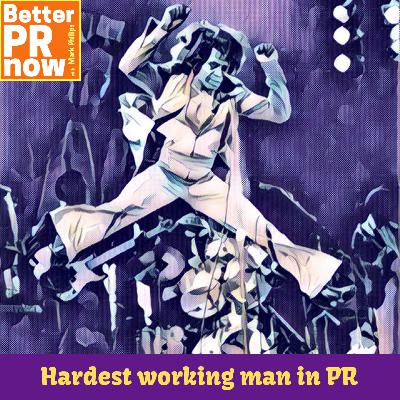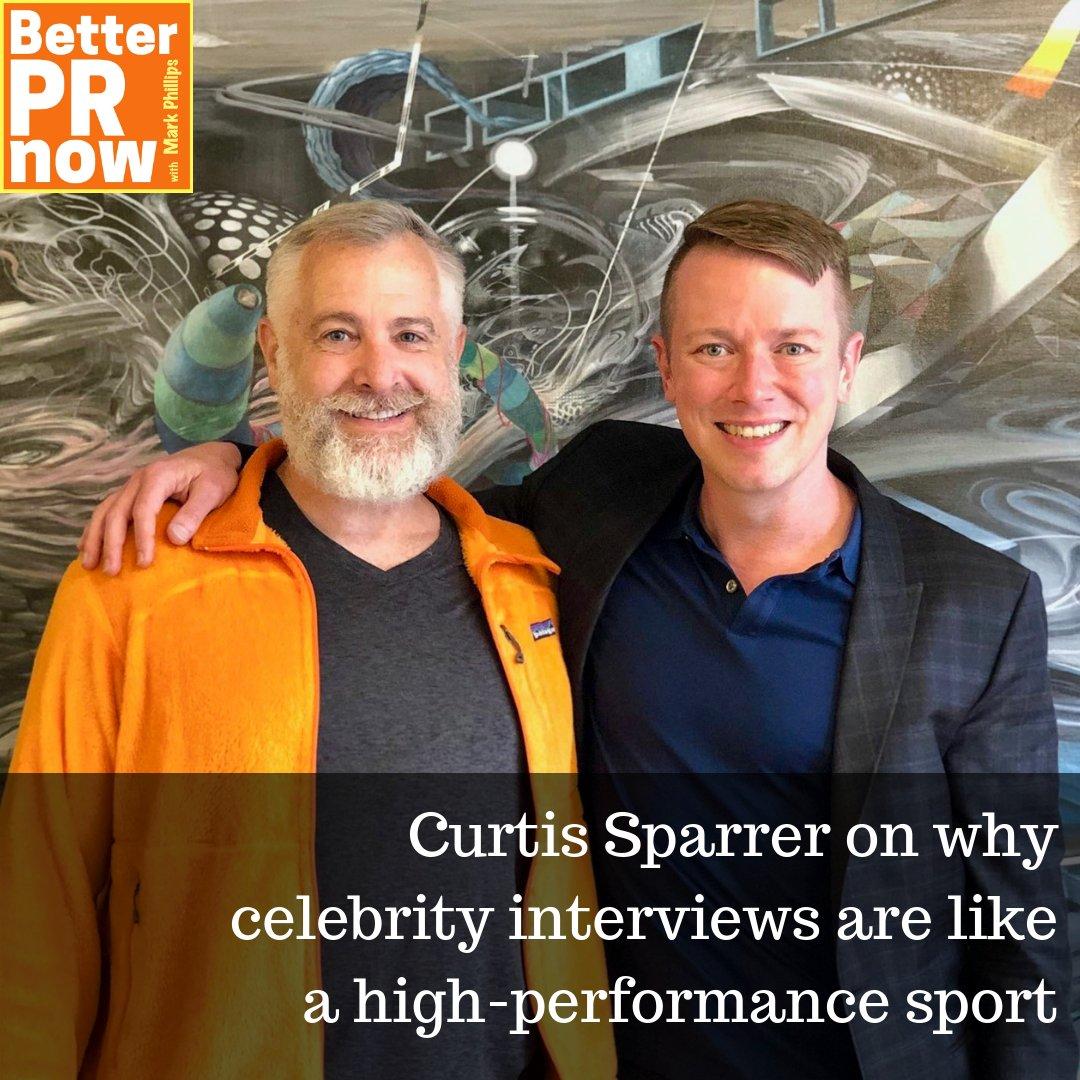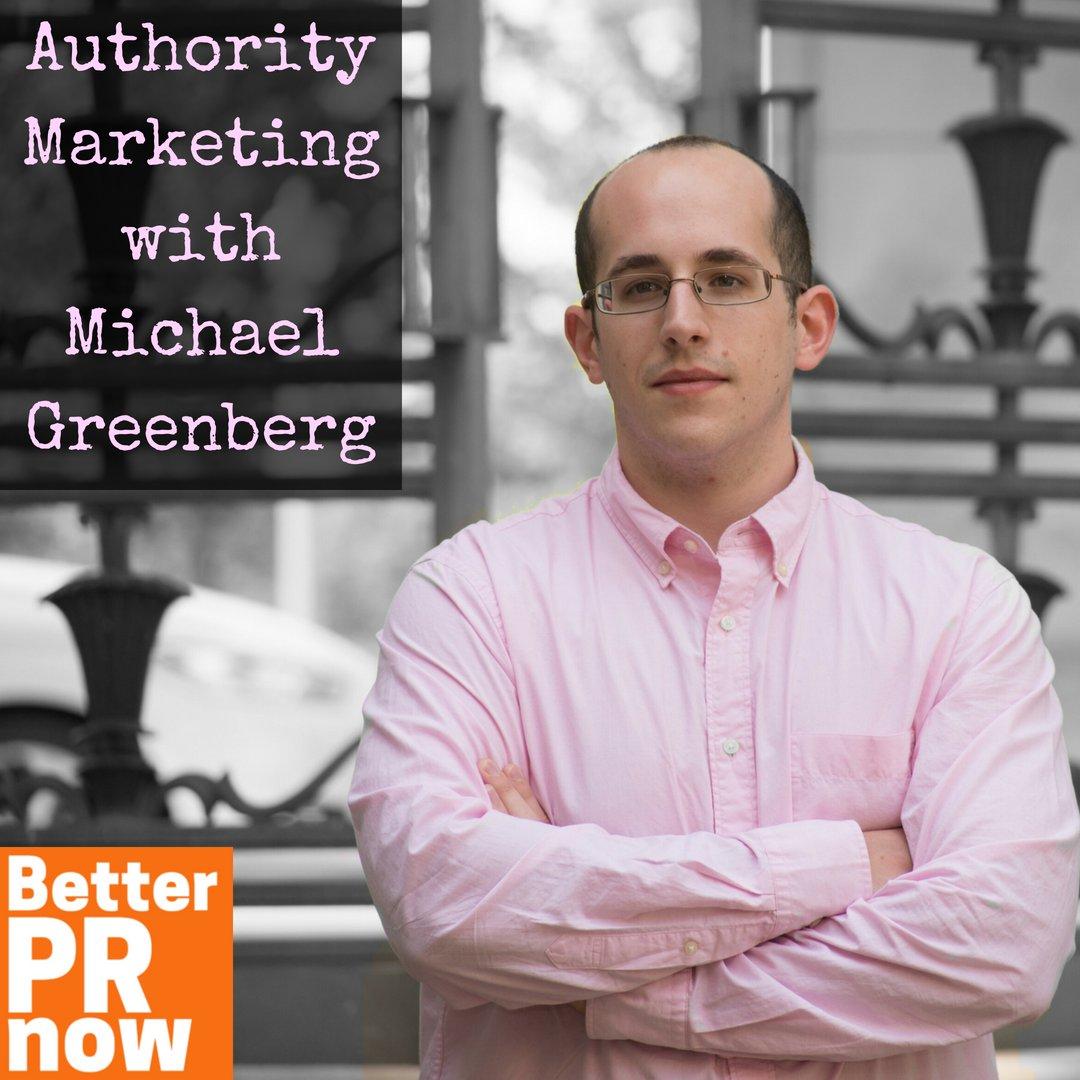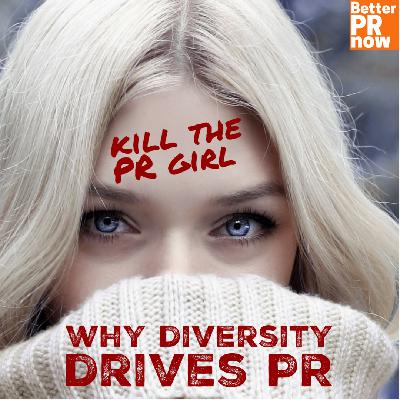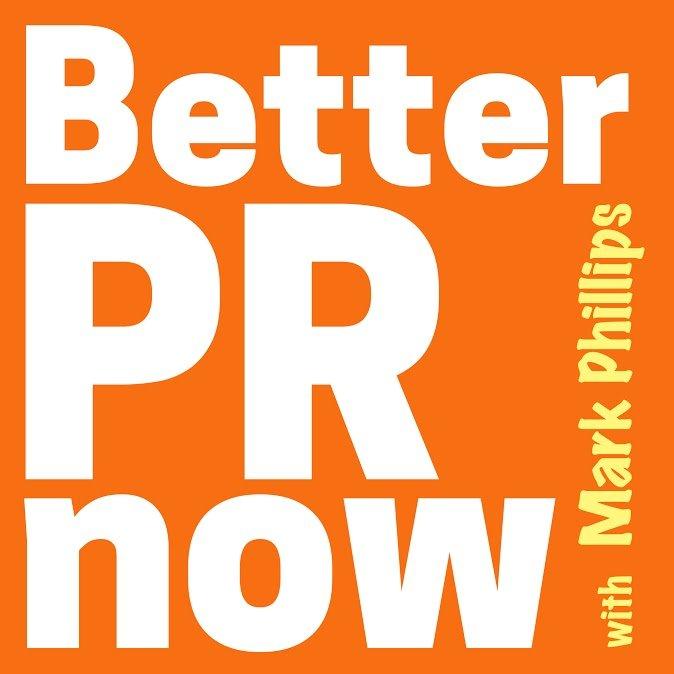014 - Secrets to Win Tech PR - Curtis Sparrer of Bospar PR Shares Secrets of His Award-Winning Boutique Tech Public Relations Agency
Description
The most important thing with PR is asking your clients what business results they want to achieve. And then reverse engineering a PR program around that.
Welcome to another episode of Better PR Now.
This episode is sponsored by our official transcription partner, transcribeme.com. If you'd like to see an example of their terrific work, check out the "notes" page on the Better PR Now website. For a 25% discount on their services, go to transcribeme.com/betterprnow.
Today, we're fortunate to be joined by Curtis Sparrer, principal at Bospar in San Fransisco. Bospar recently won the PR Week Boutique Agency of the Year award. Congratulations and welcome, Curtis.
Thanks. Thanks for having me.
So, as we jump in, I'd like to find out about how people got into public relations, how they started their career in communication. You graduated from UT Austin with a degree in Radio, Television, and Film. What's happened between graduation and ending up in San Fransisco as a principal at one of the nation's leading agencies?
Well, I think what happened in the short term is I got smart. But the long-term is a much more complicated story. I went to LA, worked for Roger Corman. He's a famous B-movie producer and discovered that I just did not have the patience to pay my dues in Hollywood. When I was going to school at UT Austin, I worked as a video film editor for the local TV stations, and I used that skill to go back into news. And my first job as a producer was in Toledo, Ohio. I cut my teeth as a producer there for about three years rising up the ranks and even moonlighting as a restaurant critic and advice columnist. I then moved to Huston where I worked the overnight show there. And then I got an amazing offer to produce the 9 PM news at [inaudible] in San Fransisco. I worked there. I won a regional Emmy. And I was promoted to the executive producer. And then as I kind of ended my career at [inaudible], I was faced with the choice that I could either move to a different city, or I could change my career trajectory so I could stay with my friends. And I gave it a long thought and determined that it would be best if I took all my skills and applied them somewhere else. I applied at a lot of different PR firms thinking that would be the best use of my skillset. And I was really surprised by the obnoxious response of a lot of people.
How so [laughter]?
I got some responses like, "Oh, I couldn't possibly qualify to do PR. It was far too complex." "Oh, PR is just so difficult and you would not just understand it." A lot of self-satisfied responses about how complex PR was. And I didn't get a lot of encouragement. I answered a Craigslist ad for a PR position, an internship really, and I met this woman named Kris [Balkie?]. And after Chris and I had a very long conversation, she called me back and said, "I don't want to do an internship. I want to get married. I want to hire you as our senior associate and I want to get things started." And so I started as a senior associate and started learning, very quickly. And I learned that a lot of people in PR were really good at telling clients no. And I decided that my fastest route for survival would be learning how to tell clients yes. And I I treated clients like anyone would treat a television anchor, with the utmost respect, and I learned that really paid off well. I also learned that a lot of times the press release material that clients were trying to get in the media was not useful for any journalist having both been a TV producer and also having been a writer.
So before we go any further. Why was it not useful? Was there a pattern there?
Yeah. It was. A lot of the content was jargon-heavy. A lot of the content was something that would not fit in any kind of current narrative or current story that journalists were already talking about. It was very tone deaf. A lot of the content was just tone deaf and it was as if a bunch of marketers were thinking I want to have this content run in TechCrunch without really bothering to think well, what is TechCrunch right now? What's important to them? And so my point to all our clients was that we needed to understand what our journalist contacts were working on and then reverse engineer our story so we would better match their priorities.
That sounds a lot like in the startup community where people are tempted to-- they have an idea and they say, "This is a really cool thing. Let me go find a market for it." As opposed to looking at the market, seeing where the pain points are where people are having challenges, and then coming up with a solution for those challenges.
Absolutely.
Just because I have a story I want to tell in a certain way doesn't mean that anybody is going to be interested in hearing it.
That's exactly it. And that's the problem that a lot of companies have and they kind of-- the expression, of course, is drink their own cool-aid but it's kind of a reality distortion field where they seem to think that the news that's important to them will be important to other people and the thing that I try to tell our clients is that's not the case. And I even been so much as vulgar to one client and I said, "Knowing a plot until you masturbate [laughter]."
That's true.
So the client was—
And how did the client take it?
-- like, "That is pretty stark but point taken."
So were you able to convince them to take a different path?
I have. I have been able to convince a lot of clients that the crazy thing they want to do is not really what they want to achieve and I think the most important thing with PR is asking your clients what business results they want to achieve and then reverse engineering a PR program around that. And I also counsel our clients that just because a story is published doesn't mean your target is going to see it and that you need to take that story and put it in front of your target's face so that the can actually see it. And I think it's resonated with me more now than ever since I'm a principal at my own firm and I use PR as our principal means of business development.
Yeah. That's absolutely true and what you're talking about is helping them shift from focusing on tactics which is where all the bright shiny objects are to focusing on a more strategic level what do you want to achieve? And then, figuring out from there okay, how do we get there?
Absolutely. And I find that when I do that that I am providing a much more full-service approach along the PESO model where some clients will say, "Well, I really want the sense at this convention that everyone's talking about us." And then I can say, "Well, that's really not going to be any story placement. What you're going to want is you're going to want to buy advertising space all over that convention so that you are the only thing people see." And the client's like, "That's what I want to do. You're right." And sometimes it's a matter about counseling a client out the bead idea. I remember one client wanted to have a press conference and if you're Facebook or Google or Apple you can probably do that but when you're a startup that's impossible. And so I had to work very hard to not insult the client but to convince him that that was going to provide the results he was looking for.
Yep. That's absolutely right. And frankly, that's really challenging sometimes.
That is really challenging sometimes and I think that it's one of the big things that all agencies and all people of marketing really face.
Yeah. Absolutely. As you've been around the public relations world for a while you've seen people execute in ways that I'm sure are just [eyewateringly?] stunningly brilliant and you've seen I'm sure people do the opposite where they fall on their faces. And I'm not asking you to out anybody [laughter] but can you describe an example where somebody did something just incredibly dumb in public relations. And the reason is I think there's a teachable moment and good lessons for all of us every time we see something like that happen.
You know, I think everyone has done something really stupid that they regretted. For me, when I think of all the dumb things I have done, I think the stupidest thing I ever did is I was trying to get a story placed because I had a crush on someone and I thought that this would be helpful and I had the whole backstory with the journalist about the crush and how great it was. And so finally the journalist coughed up the story and I was so excited about it that I forwarded the whole thread to said crush without realizing that I forwarded the whole thread to the [crush?] [laughter].
Talk about being transparent.
Awkward.
<p

